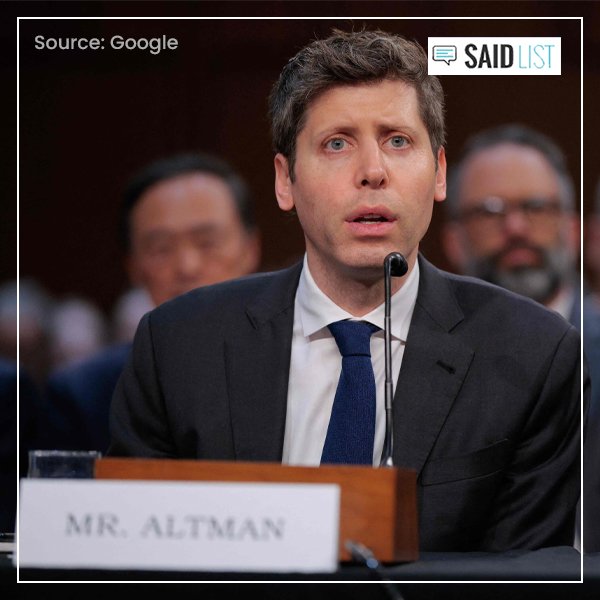Zoho founder Sridhar Vembu recently urged non-native residents of Bengaluru to learn Kannada. He made this statement in response to a tweet by Moneycontrol journalist Chandra R. Srikanth. Srikanth pointed out the double standards people often have when it comes to learning languages. She noticed that people readily learn European languages for travel but hesitate to learn regional Indian languages like Kannada.
Her tweet sparked a wider conversation about cultural respect and language learning in India’s urban centers. Bengaluru, known for its diverse population and global tech presence, attracts professionals from across the world. As a result, many people communicate in English or Hindi, often leaving Kannada behind.
https://www.instagram.com/p/DCVDNrizhcB/?igsh=MTA1MmFnZDh6ZTF4MQ==
Sridhar Vembu and the Power of Language Integration
Chandra R. Srikanth is not a native Kannada speaker. However, she has spent the past decade learning the language. She shared her personal journey with her followers. Although her efforts were modest, she noted that the local community appreciated her attempts to speak Kannada.
Srikanth’s experience resonated with many people. Her story highlighted the importance of language in connecting with local communities. She argued that language plays a key role in cultural integration. Through learning Kannada, Srikanth formed stronger bonds with Bengaluru’s residents.
Her tweet also addressed the inconsistency in language learning. People often learn European languages when traveling abroad yet resist learning Indian languages like Kannada. This observation led to discussions on how language can bridge gaps and create a deeper sense of belonging.
Sridhar Vembu’s Call for Kannada Learning
Sridhar Vembu agreed with Srikanth’s views. He emphasized that anyone living in Bengaluru should learn Kannada. He stated, “If you make Bengaluru your home, you should learn Kannada, and your kids should learn it too.” Vembu argued that failing to do so after many years in the city is disrespectful to the local culture.
Vembu extended his views beyond Bengaluru. He mentioned that in his Chennai office, he encourages employees from other states to learn Tamil. He believes that learning the local language strengthens community ties and fosters respect. According to Vembu, language is not just for communication but a way to integrate into the local culture.
Bengaluru’s Multilingual Landscape and the Language Debate
Bengaluru is a rapidly growing city with a multicultural population. The city’s tech industry attracts professionals from all parts of India and the world. Many residents communicate in English or Hindi, which has made Kannada less prominent in social and professional settings.
This shift has raised concerns among local residents. They fear that the city’s cultural identity may be lost as non-native residents rely more on English. The debate over language has become a crucial issue in a city known for its diversity. While many newcomers are comfortable using English, some locals argue that it’s important to respect Kannada as the regional language.
Proponents of learning Kannada argue that it is essential for cultural preservation. They believe that learning the language helps non-natives connect with the local community. One social media user said, “Learning the local language is fun and useful. At least make an attempt.” For them, language learning is an important step in understanding and respecting the region’s heritage.
Mixed Reactions to the Call for Learning Kannada
The push for Kannada learning has received mixed responses from Bengaluru’s residents. Some feel it is a necessary gesture of respect for Karnataka’s culture and heritage. They believe that learning the local language is a sign of integrating into the community.
On the other hand, others feel less compelled to prioritize Kannada. They point out that Bengaluru is a multilingual city. English and Hindi are widely spoken, especially in business and technology sectors. For these residents, the need to learn Kannada doesn’t seem pressing.
One commenter explained, “Auto and cab rides are app-based, so basic communication doesn’t require knowing Kannada.” With technology bridging many communication gaps, some question whether learning Kannada is truly necessary.
Sridhar Vembu’s Perspective on Language Expectations
Critics of Sridhar Vembu’s stance argue that language expectations can be unrealistic in India’s diverse cities. India is home to many languages and dialects. In cities like Mumbai, many residents have lived there for decades without speaking Marathi fluently.
This raises the question: Is it fair to expect non-natives in Bengaluru to speak Kannada? Bengaluru is a cosmopolitan city, with people frequently moving in and out for work. For many, learning Kannada might not be practical, especially when other languages suffice for daily interactions.
However, Kannada advocates argue that learning the language is about more than practicality. It’s about showing respect for the city’s history and building stronger community connections. They believe that language plays a key role in maintaining the region’s cultural identity.
The Debate on Cultural Identity and Language Preservation
The debate over learning Kannada touches on broader issues of cultural identity. As cities like Bengaluru grow and evolve, maintaining a local language can be challenging. Urban diversity often comes into conflict with the goal of preserving regional languages.
Some Bengaluru residents see the city’s multilingualism as its charm. The flexibility to communicate in multiple languages has become part of the city’s identity. However, others worry that this flexibility might lead to the fading relevance of Kannada.
Local language advocates argue that learning Kannada is about respect. It’s not just about being able to communicate; it’s about embracing the state’s heritage. As one social media user put it, “It’s not about disrespect; it’s about the challenges of learning a new language while managing a fast-paced life.”
The Future of Language and Cultural Identity in Bengaluru
As Bengaluru continues to grow, the conversation about language and cultural identity will likely persist. The city’s evolution as a global tech hub has brought new challenges to the forefront. Many professionals, while respecting the city, prefer to use English or Hindi.
Despite the challenges, the debate highlights the importance of balancing modernity with cultural preservation. As Bengaluru’s residents, both native and non-native, continue to interact, the way they navigate the language issue will shape the city’s future.
For some, learning Kannada will be a way to honor their adopted home. For others, the demands of modern life may make relying on more widely spoken languages a practical choice. Regardless of the decision, fostering understanding and respect will remain key in one of India’s most dynamic cities.











